第41章 XII THRUST AND PARRY(3)
As this was in the highest degree non-committal, the coroner could be excused for persisting.
"The conversation, then, was about your wife?"
"It was."
"In criticism of her conduct?"
"Yes."
"At the ambassador's ball?"
"Yes."
Mr. Jeffrey was a poor hand at lying. That last "yes" came with great effort.
The coroner waited, possibly for the echo of this last "yes" to cease; then he remarked with a coldness which lifted at once the veil from his hitherto well disguised antagonism to this witness.
"If you will recount to us anything which your wife said or did on that evening which, in your mind, was worthy of all this coil, it might help us to understand the situation."
But the witness made no attempt to do so, and while many of us were ready to pardon him this show of delicacy, others felt that under the circumstances it would have been better had he been more open.
Among the latter was the coroner himself, who, from this moment, threw aside all hesitation and urged forward his inquiries in a way to press the witness closer and closer toward the net he was secretly holding out for him. First, he obliged him to say that his conversation with Miss Tuttle had not tended to smooth matters; that no reconciliation with his wife had followed it, and that in the thirty-six hours which elapsed before he returned home again he had made no attempt to soothe the feelings of one, who, according to his own story, he considered hardly responsible for any extravagances in which she might have indulged. Then when this inconsistency had been given time to sink into the minds of the jury, Coroner Z. increased the effect produced by confronting Jeffrey with witnesses who testified to the friendly, if not lover-like relations which had existed between himself and Miss Tuttle prior to the appearance of his wife upon the scene; closing with a question which brought out the denial, by no means new, that an engagement had ever taken place between him and Miss Tuttle and hence that a bond had been canceled by his marriage with Miss Moore.
But his manner and careful choice of words in making this denial did not satisfy those present of his entire candor; especially as Miss Tuttle, for all her apparent immobility, showed, by the violent locking of her hands, both her anxiety and the suffering she was undergoing during this painful examination. Was the suffering merely one of outraged delicacy? We felt justified in doubting it, and looked forward, with cruel curiosity I admit, to the moment when this renowned and universally admired beauty would be called on to throw aside her veil axed reveal the highly praised features which had been so openly scorned for the sake of one whose chief claims to regard lay in her great wealth.
But this moment was as yet far distant. The coroner was a man of method, and his plan was now to prove, as had been apparent to most of us from the first, that the assumption of suicide on the part of Mrs. Jeffrey was open to doubt. The communication suggesting such an end to her troubles was the strongest proof Mr. Jeffrey could bring forward that her death had been the result of her own act.
Consequently it was now the coroner's business to show that this communication was either a forgery, or a substitution, and that if she left some word in the book to which she had in so peculiar a manner directed his attention, it was not necessarily the one bewailing her absence of love for him and her consequent intention of seeking relief from her disappointment in death.
Some hint of what the coroner contemplated had already escaped him in the persistent and seemingly inconsequent questions to which he had subjected this witness in reference to these very matters. But the time had now come for a more direct attack, and the interest rose correspondingly high, when the coroner, lifting again to sight the scrap of paper containing the few piteous lines so often quoted, asked of the now anxious and agitated witness, if he had ever noticed any similarity between the handwriting of his wife and that of Miss Tuttle.
An indignant "No!" was about to pass his lips, when he suddenly checked himself and said more mildly: "There may have been a similarity; I hardly know, I have seen too little of Miss Tuttle's hand to judge."
This occasioned a diversion. Specimens of Miss Tuttle's handwriting were produced, which, after having been duly proved, were passed down to the jury along with the communication professedly signed by Mrs. Jeffrey. The grunts of astonishment which ensued as the knowing heads drew near over these several papers caused Mr. Jeffrey to flush and finally to cry out with startling emphasis:
"I know that those words were written by my wife."
But when the coroner asked him his reasons for this conviction, he could, or would not state them.
"I have said," he stolidly repeated; and that was all.
The coroner made no comment, but when, after some further inquiry, which added little to the general knowledge, he dismissed Mr. Jeffrey and recalled Loretta, there was that in his tone which warned us that the really serious portion of the day's examination was about to begin.